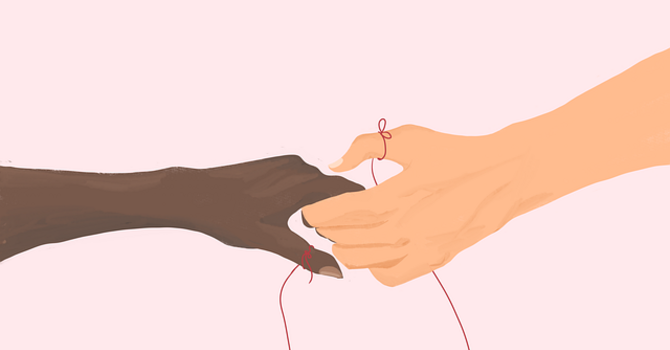
Anxiety can be an incredibly isolating experience but its effects rarely stop with the person feeling it. If you’ve noticed tension, distance, or recurring conflict in your relationship, anxiety may be playing a bigger role than you realize.
So how does anxiety affect your relationship?
Anxiety can influence how you communicate, connect, and respond to your partner, sometimes creating patterns that feel confusing or overwhelming for both of you.
In this post, we’ll explore how anxiety can impact relationships, why these patterns develop, and how you can begin to shift them, together or individually, with the right support.
What Is Anxiety?
Anxiety is the mind and body’s response to perceived threat or uncertainty. While occasional anxiety is normal, chronic anxiety can lead to excessive worry, overthinking, and heightened emotional reactivity, even in safe or loving relationships.
According to the American Psychological Association, anxiety involves excessive fear and behavioral disturbances that interfere with a person’s daily life [1].
When this anxiety enters your relationship, it doesn’t just affect your internal world, it can change how you connect with the people you care about most.
Common Ways Anxiety Affects Relationships
Anxiety can influence relationships in both subtle and obvious ways. These effects are not a reflection of your love or commitment, but rather how your nervous system tries to manage fear, control, or uncertainty.
Here are some of the most common relational patterns associated with anxiety:
1. Overthinking and Reassurance-Seeking
Anxiety can make you second-guess your partner’s feelings or behaviors. You might:
- Constantly wonder, “Are they mad at me?”
- Need repeated reassurance that the relationship is okay
- Obsess over small changes in tone, text messages, or routines
- Fear being rejected or abandoned
While asking for reassurance is natural at times, chronic anxiety can create a cycle where you feel briefly better then need it again. This can feel exhausting for both partners.
2. Emotional Reactivity or Irritability
When you’re anxious, your nervous system is in a state of high alert. This can lead to:
- Snapping at your partner over small things
- Feeling easily overwhelmed or overstimulated
- Difficulty listening or staying present in conversations
You might feel guilty after these moments, but unsure how to stop them from happening again.
3. Avoidance or Withdrawal
Some people cope with anxiety by shutting down emotionally. If this is your pattern, you may:
- Avoid difficult conversations
- Withhold feelings to “keep the peace”
- Distance yourself out of fear of conflict or rejection
This can lead your partner to feel confused, lonely, or shut out even when your intention is to protect the relationship.
4. Control and Perfectionism
Anxiety often tries to create a sense of safety through control. In relationships, this might look like:
- Trying to manage how your partner behaves, communicates, or expresses emotions
- Struggling when things feel unpredictable or “messy”
- Becoming overly focused on doing everything “right”
While this desire for stability is understandable, it can lead to tension or resentment if your partner feels micromanaged or not accepted as they are.
How Anxiety Affects Intimacy and Attachment
Anxiety can also impact deeper layers of connection, including physical intimacy, emotional vulnerability, and trust. Research shows that individuals with anxiety may be more likely to exhibit anxious attachment behaviors, including hypervigilance to signs of rejection, clinginess, or fear of being “too much” [2].
This can create a push-pull dynamic: you want closeness, but fear rejection; you seek connection, but worry it won’t last. Your partner might not always understand what’s happening, which can lead to misunderstandings or emotional distance.
Anxiety Doesn’t Mean Your Relationship Is Doomed
If you recognize yourself in these patterns, you’re not alone, and your relationship is not broken. Anxiety doesn’t mean you’re “too much,” “controlling,” or incapable of love. It means your nervous system is trying to protect you, often in ways that were shaped by past experiences, attachment wounds, or trauma.
Healing is possible, with the right insight, communication, and support.
How Therapy Can Help
Whether you're in a relationship or navigating anxiety on your own, therapy can help you:
- Understand the root of your anxiety and how it shows up in relationships
- Learn tools for nervous system regulation and emotional safety
- Develop healthier communication and conflict resolution skills
- Shift anxious patterns (like avoidance, overthinking, or control)
- Rebuild trust, within yourself and with your partner
My Approach
In therapy, I use an integrative, trauma-informed approach to help clients untangle the complex relationship between anxiety and connection. This may include:
- Attachment-based therapy to explore early relationship patterns
- EMDR to process past relational wounds or triggers
- Mindfulness and nervous system regulation to build a stronger sense of safety in your body
- Communication skills coaching to help you express needs without fear
Whether you're working individually or as a couple, therapy is a space to feel seen, supported, and empowered in your relationships.
You’re Not Alone!
Anxiety doesn’t have to define your relationship or your worth as a partner. With self-awareness, compassion, and support, you can begin to rewrite the stories anxiety has been telling you and reconnect with the love, trust, and intimacy you deserve.
Sources:
[1] American Psychological Association. Anxiety.
https://www.apa.org/topics/anxiety
[2] Bosmans, G., et al. (2015). Adult Attachment and Anxiety Disorders: A Meta-Analysis.
https://www.ncbi.nlm.nih.gov/pmc/articles/PMC4324975/





